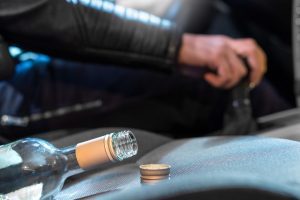
When you sit behind the wheel of your car, the last thing you think about is getting in an accident. Unfortunately, car accidents happen every day, including those that occur because of intoxicated drivers. If you live in Seattle or anywhere else in Washington and get hit by a drunk driver, knowing what happens next is important in terms of the legal process and peace of mind. Find out more below.
Alcohol-related impairment accounts for 58% of vehicular accidents in Washington. Between 2017 and 2021, 126 people died as a result of alcohol-impairment; 96 of them were motorcycle riders. And while drunk driving accidents in the state have decreased over the past three decades, there are other factors to keep in mind. For example, the sale of alcoholic beverages in Washington was privatized in 2011, allowing any business with a liquor license to make money from beer, liquor, and wine sales. Being able to purchase alcohol from virtually any location, such as convenience stores, gas stations, and grocery stores, arguably makes drunk driving accidents more likely.
Injuries from drunk driving car accidents are often severe and can include:
Many car accident victims experience post-traumatic stress disorder, or PTSD. Common symptoms include problems sleeping, recurring nightmares and flashbacks, depression, avoidance of certain places and people, detachment from family and friends, and emotional numbness.
It is possible for a victim of a DUI accident to claim economic and non-economic damages in a personal injury suit. Economic damages cover monetary costs relating to the accident and typically include emergency medical care, ongoing medical care, lost wages, and disability (if applicable). Non-economic damages concern the emotional and psychological ramifications of the accident, and often include mental anguish, pain and suffering, and emotional distress. Depending on the extent of the injuries, loss of life’s enjoyment may be included in non-economic damage requests.
While the drunk driver is typically the one who is liable for your injuries in a car accident, you may also be able to pursue a claim against the person or establishment who sold the alcohol to the driver. Under RCW 66.44.200:
In other words, if the person who hit you or your loved one was overserved by a restaurant or bar, or if he or she was sold alcohol by another vendor despite being “apparently” intoxicated, that restaurant, bar, or vendor can be named in a civil lawsuit for damages.
The first thing to do in the event of a drunk driving accident is ensure you and any passengers are safe. If you suspect serious injuries, try to move yourself or vehicle occupants as little as possible while calling 911 and waiting for the police and EMTs to arrive. Medical treatment not only helps prevent related health complications, it provides your claim with documentation. The police report also provides documentation, so obtain both reports as soon as you can for evidence purposes.
When the police officer arrives at the scene, they test the offending driver’s blood alcohol level using a breathalyzer. This test provides further evidence necessary for a strong legal claim. The officer can also help you trade contact and insurance information with the intoxicated driver. If anyone witnessed the accident, obtain their contact information as well. The officer also takes witness statements.
Speak with an attorney as soon as you are able and provide as much information as you can about your case, including the photos, videos, and documents you have. The legal professional uses the evidence to build a case showing that the drunk driver owed you duty of care, yet that care was breached. Your injuries directly resulted from the driver’s negligence and you subsequently deserve damages. The lawyer will advise you about which damages to request in light of your injuries.
Getting hit by a drunk driver is always traumatic, regardless of the circumstances. Knowing your rights and what steps to take after the incident helps you stress as little as possible and hopefully obtain the compensation you deserve.
